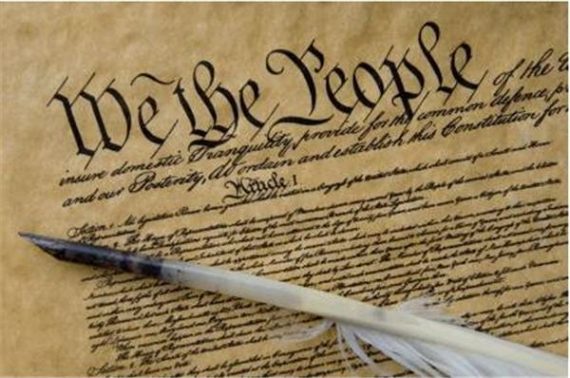Obama Signs PATRIOT Act Via Autopen
Congress passed the extension of the PATRIOT Act in the late hours of Thursday, but President Obama is in France for the G-8 Summit. So, you may wonder exactly how the President managed to sign the bill into law before the midnight Eastern Time deadline. Well, it was slightly unconventional but apparently entirely legal:
According to aides, Obama had to be awakened early Friday, which was after the deadline by French beach resort time.
The commander-in-chief reportedly reviewed the provisions carefully and ordered his signature affixed to said bill.
Wait! What? The president of the United States didn’t actually sign it himself??
(…)
According to the White House, upon President Obama’s direct specific orders from France, a machine put his name on the legislation back in the White House, where midnight had yet to arrive. The official White House notice of the signing arrived with just six minutes to spare.
This struck me as unconventional to say the least, and possibly not within the spirit, if not the letter, of the Constitution’s requirement that the President actually “sign” a bill for it become law. Nonetheless, the White House is confident that the action is entirely legal:
Jay Wexler, a Boston University law professor and author of “The Odd Clauses: Understanding the Constitution Through Ten of Its Most Curious Provisions,” says the constitutionality of using an autopen was confirmed in a thorough 2005 Office of Legal Counsel opinion.
Here’s the relevant passage written by then-Deputy Attorney General Howard C. Nielson:
“We examine the legal understanding of the word ‘sign’ at the time the Constitution was drafted and ratified and during the early years of the Republic. We find that, pursuant to this understanding, a person may sign a document by directing that his signature be affixed to it by another. … Reading the constitutional text in light of this established legal understanding, we conclude that the President need not personally perform the physical act of affixing his signature to a bill to sign it within the meaning of Article I, Section 7 [of the Constitution.]”
Look at the relevant section of Article I, Section 7:
Every Bill which shall have passed the House of Representatives and the Senate, shall, before it become a Law, be presented to the President of the United States; If he approve he shall sign it, but if not he shall return it, with his Objections to that House in which it shall have originated,
Was the bill “presented” to the President? Well, according to the media reports he reviewed it so most likely a copy was transmitted to him in Europe.
Did he “sign” it? Is signing via electronic device from thousands of miles away what the Founders had in mind? Probably not, but they probably also didn’t have ball point pens in mind either. It isn’t the means of signing that’s the issue but the manner and, in this case, the cause for concern should be that at a document is “signed” by the President without him actually being in the room, or the country. It may be Constitutional, but I hope they turn the machine off at night so someone isn’t granting pardons under the rug.


Completely disappointing..
Actually, this strikes me as wholly within the spirit of the law, i.e., that laws passed by Congress must receive the assent of the President before coming law.
Further, in terms of interpreting the significance that the Framers assigned to the actual signature, one need only continue in the section quoted above: “If any Bill shall not be returned by the President within ten Days (Sundays excepted) after it shall have been presented to him, the Same shall be a Law, in like Manner as if he had signed it, unless the Congress by their Adjournment prevent its Return, in which Case it shall not be a Law.”
That is: there is a provision by which bills can become laws sans signatures.
I assume that the deadline noted in the post is the summer recess, which means that no assent from the president would have results in a pocket veto of the bill. Of course, that also means that if the president wanted the bill to die, he could have refused the robo-signature, but clearly he wanted to give assent.
Really, the notion of a physical signature as the sine qua non of imprimaturs is a ancient, but in many ways outmoded notion in the current age. I supposed if Obama’s actual signature was needed, he could have signed a scanned copy of the bill and scanned and e-mailed it back to DC from France, That would have blown the Framer’s minds as well…
@Steven
The deadline was the fact that under the law the PATRIOT Act would have expired at midnight. f course, the law also said that any ongoing investigations could continue using the the methods the law authorized so the actual impact of a day or too delay would have been minimal to nothin
@Doug:
Thanks.
Where is that pen? Can it be bribed? I’ve made up some Executive Directives I’d like to see signed…